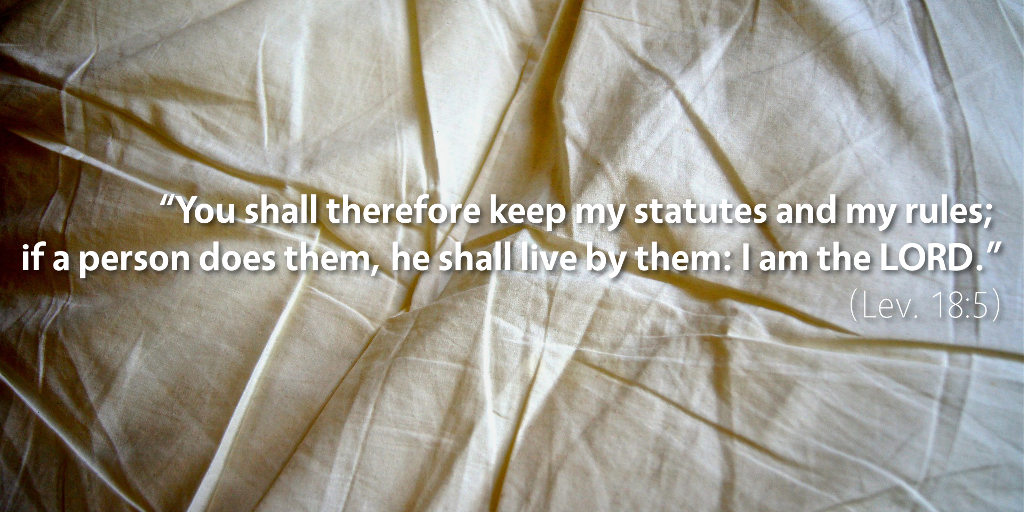Bible Readings for April 14th
Leviticus 18 | Psalm 22 | Ecclesiastes 1 | 1 Timothy 3
There is no getting around it—Leviticus 18 is an awkward chapter to read. Here, Yahweh details all the possible people a man was prohibited from approaching to uncover their nakedness—that is, to approach sexually. Nevertheless, this chapter has great significance today as we live in a culture obsessed with sexual relationships between anyone, in any context, and at any time. Leviticus 18 is one of the more explicit chapters for establishing a theology of human sexuality.
First, it is interesting that these laws would have prohibited the marriages of two of the patriarchs, Abraham and Jacob. Abraham had married his half-sister—the daughter of his father but not the daughter of his mother (Gen. 20:12)—a relationship Yahweh now specifically forbids in Leviticus 18:9. As for Jacob, he had taken Rachel as a rival wife to her sister, Leah, while Leah was still alive, which Yahweh prohibits here in Leviticus 18:18.
Although no such prohibitions existed at the time Abraham or Jacob married their wives, we should acknowledge that these marriages were deeply problematic, even if they had been lawful. Abraham abused Sarah’s sibling relationship to him by lying about their marriage—twice (Gen. 12:10–20, 20:1–18). And when Jacob married both Rachel and Leah, he made their lives miserable through their marital rivalry (Gen. 29:1–30:24).
Second, Yahweh notes three times in this chapter (Lev. 18:3, 24–25, 27–28) that the activity he was prohibiting was not theoretical or hypothetical but the standard practice of both Egypt as well as the nations who were being vomited out of the land of Canaan.
Third, but relatedly, Yahweh ties these regulations for sexual relations to the overarching, stated purpose of the law, that whoever obeys the rules of the law will live by them (Lev. 18:5). In this way, Yahweh places sexual behavior in the context of holiness, so that engaging in unlawful sexual behavior represents something far worse than breaking an arbitrary rule—such activity defiled the holiness of Yahweh who dwelt in Israel’s midst.
Our sexuality is not a small thing to Yahweh, and what was true for Israel under the old covenant takes on even more significance for those of us living today. For Israel, sexual immorality defiled the tabernacle where God’s presence dwelt in their midst.
But today, we have been made members of the body of Christ, and God has even made us the temple in which his Holy Spirit lives. So, Paul explains in 1 Corinthians 6:12–20 that not only does sexual immorality defile our bodies, but it actually joins Christ to a prostitute and defiles the Holy Spirit who dwells within us.
Therefore, “You are not your own, for you were bought with a price. So glorify God in your body” (1 Cor. 6:19–20).
Podcast: Play in new window | Download (5.7MB) | Embed
Subscribe: Apple Podcasts | RSS | More

Scripture quotations are from The Holy Bible, English Standard Version copyright © 2001 by Crossway Bibles, a division of Good News Publishers. Used by permission. All rights reserved.


